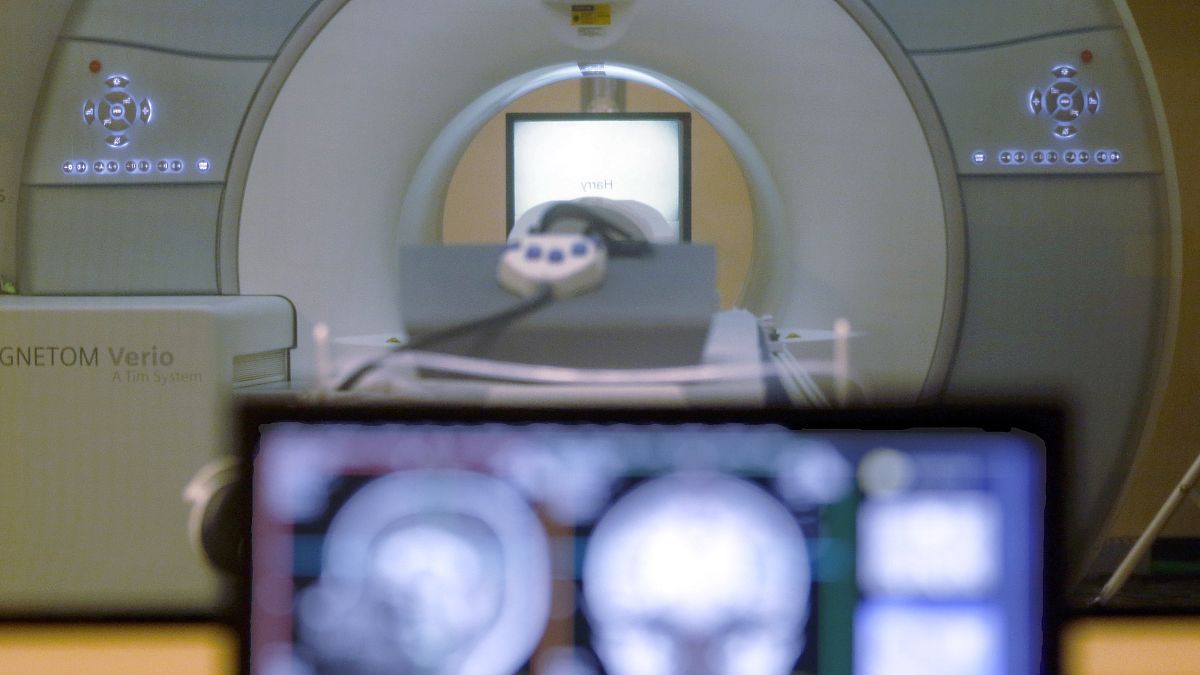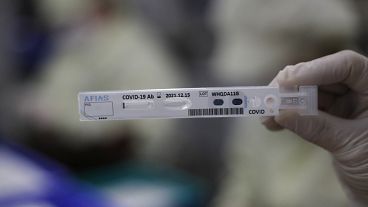Many people with traumatic brain injuries have normal CT scans, but still struggle to recover. A new study indicates that advanced MRI scans can improve the prognosis.
Concussion patients can develop persistent, sometimes severe symptoms as a result of their head injury, but traditional tests often fail to identify which patients are most at-risk. Now, a group of international researchers has found a way to improve the odds.
Typically, doctors observe patients when they come to the hospital with a possible brain injury, and they may order a CT scan to check for bruising, bleeding, or swelling.
But the new study, published in the Lancet-affiliated eClinicalMedicine, found that another type of brain scan, known as diffusion tensor imaging MRI (DTI), is more likely to predict an “incomplete recovery” several months later.
The findings could help improve care for the 1.5 million people hospitalised for traumatic brain injuries (TBI) such as concussions in Europe every year. Estimates vary on how many TBI patients experience long-term complications, but many people who leave the hospital with a normal CT scan experience lingering symptoms in the months after their injuries.
That can include severe fatigue, poor memory, headaches, and mental health issues such as anxiety, depression, and post-traumatic stress.
Without conclusive evidence of a brain injury, however, it can be difficult for patients and doctors to identify the cause of their symptoms, or to treat them effectively, according to Dr Virginia Newcombe, one of the study’s authors and a researcher and emergency physician at the University of Cambridge.
“The problem is that the nature of concussion means patients and their GPs often don’t recognise that their symptoms are serious enough to need follow-up,” Newcombe said in a statement.
“Patients describe it as a ‘hidden disease’, unlike, say, breaking a bone”.
Newcombe’s team retroactively analysed data for 1,025 adult patients who participated in a European research project on brain injuries and met TBI criteria. Among them, 38 per cent had an incomplete recovery three months after their injuries.
Researchers then compared two groups of patients with mild traumatic brain injuries who had normal CT scans – 153 people who got a DTI scan and a control group of 157 patients who received standard care – and measured how accurately doctors predicted their poorer outcomes.
Among those with standard care, the prognosis was right 69 per cent of the time, but that level rose to 82 per cent among those who had a DTI scan.
The findings add “another piece to the puzzle about different things we can do at different time points, and with different decision-making tools” for patients with brain injuries of varying severity, Lisa Brenner, chief executive and chair of the International Brain Injury Association, told Euronews Health. She was not involved with the study.
Notably, the analysis included people whose head injuries qualified them for CT scans, meaning the results might not hold for those with milder injuries. Patients in the study also got DTI scans between 0 and 31 days after their injuries, which could influence the results.
Brenner also noted that DTI technology is not readily available in most hospitals, creating logistical hurdles to offering these scans regularly today. More research with bigger samples could help test the results and make the case.
“Recovery is a nuanced thing,” Brenner said.
Even so, the study authors believe adding DTI scans to standard practice could be a realistic change for hospitals to make because standard MRI scanners can be adjusted to track the data, meaning no new equipment is needed.
They also said this process could help doctors prioritise which head injury patients should be brought in follow-up appointments, given health systems don’t have the resources or time to make check-ups a universal recommendation.
“The majority of head injury patients are sent home with a piece of paper telling them the symptoms of post-concussion to look out for and are told to seek help from their GP if their symptoms worsen,” Newcombe said.
Armed with DTI results, patients might have a little more insight if they do.















